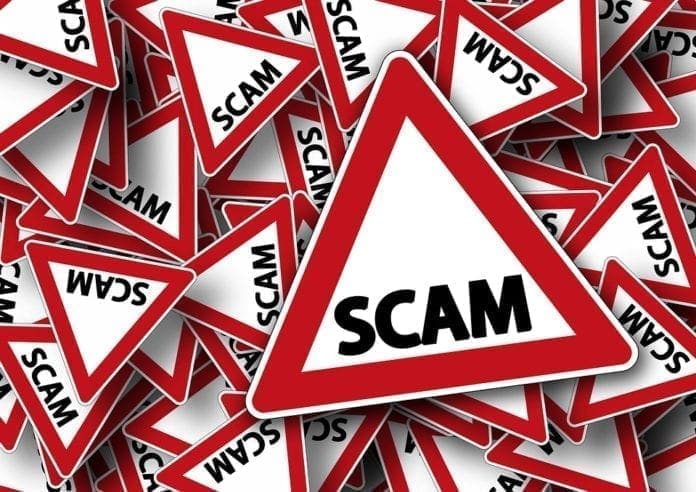Scam – /skam/ noun INFORMAL noun: scam; plural noun: scams 1. a dishonest scheme; a fraud. 2. swindle People have tried to steal other people’s ‘stuff’ and identities since time immemorial.
Remember the story of Jacob and Esau in the Bible? Jacob scammed Esau for his birthright and then scammed his father Isaac for his blessing. Land documents and fake artifacts were prominent in the Middle Ages. Emperor Constantine granted the Catholic Church ownership of vast lands in the western Roman Empire.
The Donation of Constantine was found to be fraudulent. Michelangelo buried an early sculpture in acidic soil to age it in order to command a higher price.
The 1800s saw A.V. Lamartine working a ‘suicide scam’ whereby he played on the sympathy of kind and generous people by “attempting” suicide repeatedly. Money was sent to help him and also to get him to leave. It is reported that he earned $25 in Dayton and $40 in Sandusky in one day from those who, in essence, told him to go commit suicide somewhere else.
Anyone who is a fan of old Westerns knows that the magic elixir salesman was trying to sell a worthless product to gullible townspeople. The fake minister collected for indigenous people but rode off with the donors’ money.
Phishing
Phishing, which is trying to obtain personal information by representing as reputable or known businesses, has become more prevalent and less difficult as technology and communication have evolved. Scammers used to “phish” by snail mail. What used to be phishing by snail mail has evolved into phishing through emails, texts, and social media.
There is a problem with your AmEx account. (Oh wait! You don’t have an AmEx account!) Phishing continues through telephones, too, with cell phones being added to the menu for scammers’ use. They can even use ghost numbers, so you think you know where the call is originating.
Don’t scammers still do it in person? You bet they do! Is that really a utility representative or do they just want to get in your home and scope it out? Is that guy really a contractor or does he just promise service and disappear with the down payment?
I have recently heard of the ‘work at home scam’ whereby the person is recruited to work at home. They are asked to provide their Social Security number, date of birth and bank account number so wages can be automatically deposited, and any ‘necessary’ expenses can be withdrawn. Don’t fall for this one!
The Publisher’s Clearinghouse scam is coming around again. You’re told you’ve won a lot of money, but you must first pay to release your winnings. Publisher’s Clearinghouse states that they do not require payment for winnings.
Anyone can fall prey to a scammer. Be cautious so it doesn’t happen to you.
(Sources: The Bible, Genesis 25 & 27; hoaxes.org, “Hoaxes of the Middle Ages”; NPR.org, “How Scams Worked in the 1800s”; PCH.com, “Fraud Protection”. Ann Koegler, M.A., L.S.W. Altenheim Resource & Referral Services.)
Related:
Pharmacy Discount Cards Too Good To Be True?


